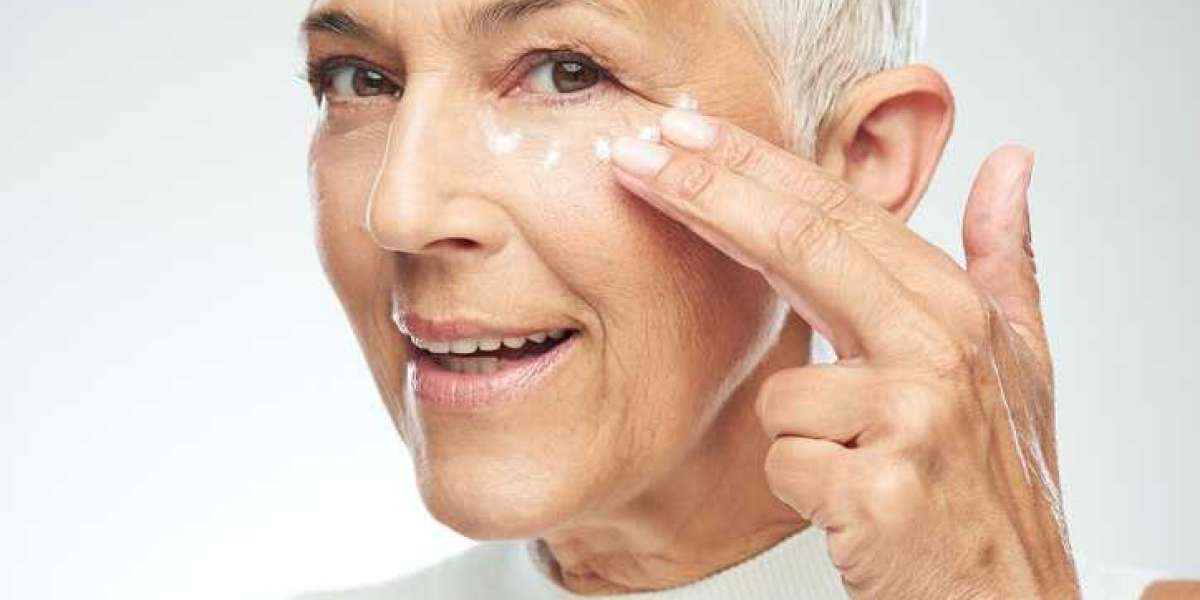Aging is a natural process that occurs over time. Maturity can bring a variety of benefits, ranging from professional advancement to newly discovered freedom. Our skin is the most visible manifestation of the effects of aging. If you have fine lines, dark spots, or sagging skin, there's no denying that your skin is changing and that you should take action right away.
Before you spend your money on overpriced products to treat your aging skin, think about which steps are the most important to include in your skincare routine. Despite the fact that the products you choose to incorporate will vary from person to person, we recommend following an effective anti-aging skincare routine.
1. Gentle Cleanser (optional)
Using a cleanser twice daily is an important step for everyone, no matter what their age or health status. Using a cleanser that strips your skin of its natural oils is especially important as you age, especially if you're already experiencing dryness or irritability on your skin. Instead, concentrate on finding a gentle cleanser that you can use both morning and night to wash your skin. Make certain that you evaluate the ingredients in your cleanser to ensure that it is appropriate for your skin type before using it. This will ensure that your face is thoroughly cleansed without causing irritation.
Toner is the second item on the list.
Using a towel, pat your face dry and prepare to apply a toner after you've finished cleansing it. Toners are typically available in the form of a liquid that can be applied with a spritz bottle or cotton pads. The purpose of a toner, like that of a cleanser, is to remove any additional residue that did not come off during the cleansing process. In addition to this, toner works to restore the pH levels of your skin, which helps to keep your skin in a healthy balance. To achieve the best results, apply toner to your face while it is still damp from washing. If you use a small amount of water, you will find that your skin will absorb the moisture from the product more readily.
3. Serum (or serums)
Assessing your skin type and understanding how certain skincare ingredients can affect your complexion are the first steps in selecting the best serum for your complexion. Being aware of these facts will enable you to make an informed decision about which ingredients to include in your serum. When it comes to skin care, vitamin C, hyaluronic acid, and vitamin E are extremely effective because they work to build collagen and absorb the environmental and biological oxidative stressors that contribute to the aging of the skin. Brightening and moisturizing properties are provided by this product. Skin will appear and feel smoother, softer, and brighter as a result of this treatment.
5. Cream containing retinol (vitamin A).
The use of face creams for aging skin is another effective way to maintain your youthful glow, particularly if the creams contain retinol. In its natural form as a derivative of vitamin A, retinol is a potent anti-aging ingredient that works by plumping the skin and reducing moisture loss to help reverse the signs of aging. This ingredient can be found in some serums, but topically applying it in the form of a cream is often preferred by people who have dry, sensitive skin because it helps to maintain hydration levels. In particular, using retinol (vitamin A) anti-aging cream will aid in the stimulation of cellular turnover and the removal of dead skin cells, all while maintaining the integrity of your skin's natural barrier. Instead of skipping over this treatment, combine it with another type of serum that can have a different effect on a different area of your skin's health. You will be able to achieve your skincare objectives more quickly as a result.
5. Moisturizer (optional).
The amount of sebum produced by your skin decreases as you grow older. Some people believe that this is exactly what they've been waiting for: a chance to finally grow out of their acne-prone years. Others who already have dry skin may experience flakier, itchier skin as a result of less sebum production. You should always use a moisturizer as part of your daily skincare routine, no matter what skin type you are classified as having. There are a variety of products to choose from, ranging from scented body lotions to creams and ointments. Nonetheless, when it comes to your facial skin, health professionals recommend that you stick with a fragrance-free moisturizer because they are generally more effective than other scented products. For aging skin, you should look for a moisturizer that is formulated to stimulate skin renewal while also reviving the appearance of the skin tone. Using your clean hands, lather a small amount of moisturizer onto your face and neck after determining which one you want to use.
6. Use of a sunblock
Having beautiful, sun-kissed skin may be something you've always wished for, but how far are you willing to go in order to achieve your goal? Despite the fact that the sun is a good source of vitamin D, excessive exposure can be harmful to your skin's health. UV protection is important for people of all ages. Aside from severe sunburns, excessive sun exposure can cause dark spots and fine lines on the skin, as well as worsen skin conditions such as melasma, rosacea, and skin cancer. It goes without saying that sunscreen should be a mandatory component of your anti-aging skincare regimen. There are a variety of other options for those who prefer a natural lifestyle.
This should be applied in the morning, after your moisturizer but before your makeup to keep your skin looking fresh. Use a sunscreen with an SPF of at least 30 to provide the best possible protection from the sun. This will ensure that your exposed skin will be protected from the sun's harmful ultraviolet rays (UV) throughout the course of your day's activities. Even if it's cloudy outside, it's important to reapply sunscreen if you're swimming, sweating, or planning on spending long periods of time outside.
7. Eye cream is a must-have.
The skin around your eyes, in comparison to other parts of your body, is arguably the most delicate of all. It's also one of the first places where you'll notice visible signs of aging, aside from your face and hands. As a result, you must find an adequate eye cream to use on a daily basis. In addition to brightening and hydrating your eyes, targeted eye creams may help to reduce the appearance of wrinkles, fine lines, under-eye bags, and dark circles around your eyes. Just be careful not to put on too much at once because a little goes a long way when applying makeup. Apply a pea-sized amount of eye cream to your ring finger after you've finished moisturizing, then rub it in around your eyes and around your eyeslids to avoid overusing.
Note: While eye cream should be the final step in your nighttime skincare routine, it should be the second-to-last step in the morning, right before applying sunscreen.
Please feel free to read different product reviews online to find the best products for your skin type! When in doubt, talk to your doctor or a dermatologist about your options. The most important thing to remember is that you are beautiful at any age!



